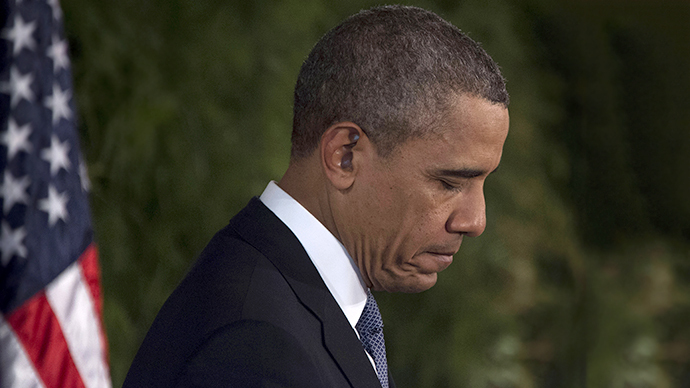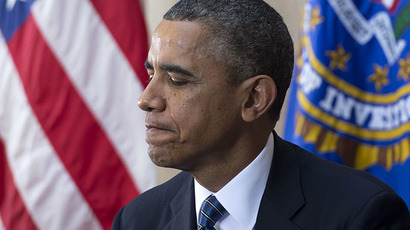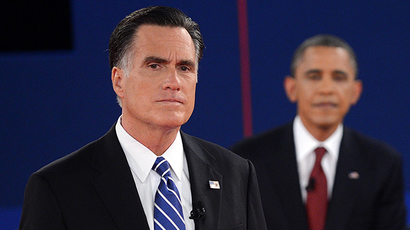Obama’s approval rating lowest-ever, months before midterm elections

President Barack Obama’s approval ratings have hit another low, dropping to 41 percent. The previous record was 42 percent in November. And the president’s unpopularity could hurt his fellow Democrats in the upcoming 2014 mid-term elections.
The Post-ABC News poll of 1,000 adults, released Tuesday, shows that 52 percent of respondents disapprove of the way Obama is handling his job as president. The numbers were even more grim when respondents were asked about the situation in Russia and Ukraine and the implementation of the Affordable Care Act (better known as Obamacare). When it came to Russia, Obama received a 34 percent approval rate, with 46 disapproving. For health care, 37 percent approved, while 57 percent disapproved. The survey was taken April 9-13.
Peter Grier, the Washington editor for the Christian Science Monitor, warns that presidential approval ratings in the low 40s signals “a danger zone for the Democratic Party.”
Conservative blogger Jennifer Rubin echoed that sentiment.
“Politics today resembles the second term of President George W. Bush. The country stopped listening to him; the voters had decided they had had it,” Rubin writes in a Washington Post column. “Both he and his party suffered in polls in the last midterm election of his presidency.”
And the Democrats are suffering. A majority of participants (53 percent) said that it was more important to have Republicans in charge of Congress, to act as a check on Obama’s policies. Nearly two-thirds of respondents say they plan to look around at other candidates, rather than the incumbent. Congressional Republicans also rated better than the president when it came to finding the balance between cutting unneeded government spending versus continuing necessary government spending, with 45 percent siding with Republicans in Congress and 38 percent choosing Obama.
Sean Trende at RealClearPolitics wrote in January that there is a statistically significant relationship between Obama’s job approval and Democratic votes in Senate elections. “With the movement of the president’s job approval numbers into the low 40s, the Democrats’ Senate odds would deteriorate considerably,” he said.
“If the president’s job approval is still around 43 percent in November -- lower than it was on Election Day in 2010 -- the question would probably not be whether the Democrats will hold the Senate, but whether Republicans can win 54 or 55 seats,” Trende wrote. “Given the numbers… that should not be unthinkable.”
Despite the gloomy election outlook for Dems, more respondents - 45 percent - said they would vote for the Democratic candidate in their congressional district, to 44 percent who plan to vote for the GOP candidate. And voters still trust them more than Republicans overall (40-34, with 17 percent responding neither). The Democrats also have voter trust on several key issues: health care (43-35), immigration (40-34) and abortion (43-35).
Republicans got slammed on several issues: helping the middle class (52-32), women’s issues (55-25), gay marriage (45-31), minimum wage (47-29). The Republicans had a higher level of trust on the federal budget deficit (44-35) and gun control (44-39). With a 3.5-point margin of error, the two parties were in a statistical tie on the economy.
As the deadline for enrolling in Obamacare was
extended and finally arrived on March 31, the poll showed the
overall popularity of the program has declined from 49 percent to
44 percent this month. Half the respondents believed the
implementation was worse than expected, compared to the 41
percent who saw the implementation going better than expected.
Business Insider points out that Obamacare approval ratings fell,
despite the fact that enrollment exceeded its original targets,
with more than 8 million people enrolling through health-care
exchanges created by the ACA.














